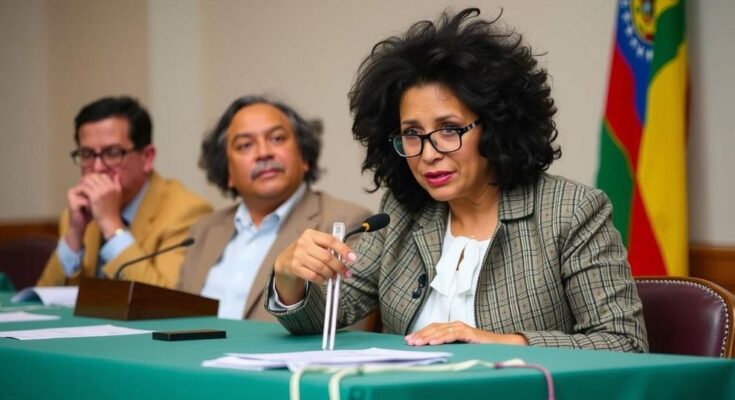Bolivia conducted a divisive popular vote for judges on Sunday amidst restrictions on campaigning. Candidates attempted to gain visibility through clever marketing tactics, contrasting the public’s growing apathy toward the elections. This judicial election, unique to Bolivia, follows a global trend influenced by recent changes in Mexico, yet faces criticism regarding its effectiveness and integrity, particularly amid concerns over political influence in the judiciary.
Bolivia held a controversial popular vote on Sunday to elect four judges to its Constitutional Court. Despite campaigning being banned, candidates’ images appeared on snacks and official materials, signaling a struggle for public recognition among voters unfamiliar with the candidates. Bolivia is unique in allowing citizen voting for its judiciary, a practice now being adopted by Mexico following its recent judicial reforms. Critics argue the judicial elections have politicized the courts instead of fostering independence, echoing concerns voiced by international experts regarding the integrity of justice systems in Latin America.
The elections were postponed by the Constitutional Court, a move that drawn scrutiny, especially given its perceived alignment with President Luis Arce. The power dynamics within Bolivia’s political landscape, particularly the ongoing rivalry between Arce and former President Evo Morales, underscore the contentious nature of these elections. Additionally, only a partial election is taking place, as five out of nine judges will remain in their positions, raising further questions about the overall impact and credibility of this electoral process. Past judicial elections in Bolivia have seen low voter turnout and skepticism regarding the legitimacy of elected judges, adding to the challenges faced by Bolivians in navigating this complex electoral system.
The backdrop of Bolivia’s judicial elections involves a significant transformation in its legal framework initiated over a decade ago. The country stands as the sole nation globally holding elections for high judicial roles, a shift intended to democratize the judiciary. However, this approach has led to numerous problems, including the fusion of political interests with judicial responsibilities. Observers fear such practices can lead to the erosion of checks and balances within the government, diminishing the independence and efficacy of the judiciary. The postponement of judicial elections in Bolivia has also raised human rights concerns, further complicating the political landscape in a country already marked by deep divisions.
In conclusion, Bolivia’s judicial elections illustrate a contentious intersection of politics and justice, where electoral processes designed to enhance democracy have resulted in increased skepticism and political strife. As voters approach the polls, the lingering effects of past election cycles and concerns regarding the legitimacy of the candidates may continue to hinder public trust in the judiciary. The implications of these elections extend beyond Bolivia, with other nations observing closely as they navigate similar judicial reforms.
Original Source: www.voanews.com




